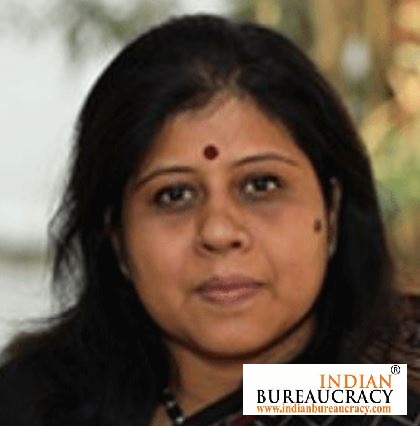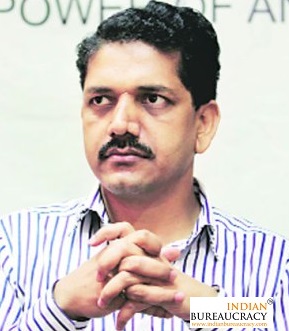Odisha’s transformational journey from poverty to prosperity in last few years has been successfully steered by a cadre of dedicated and empathetic bureaucratic leaders who believe in being among the common people to draw insights and inspirations for creating solutions for their problems and bringing positive changes in the lives of the masses.
Handling three important portfolios in Odisha’s administrative and governance mechanism, Ms Roopa

Roshan Sahoo, is at the forefront of state’s socio-economic metamorphosis. Her role as the commissioner-cum-secretary of ST & SC Development and Minorities & Backward Classes Welfare Department has been phenomenal as she has been taking some bold, proactive and evolutionary steps in policy matters for the betterment of the non-general communities whose development and welfare are bestowed upon this department.
Since the tribal dominated areas remain mostly poor and underdeveloped, she has been regularly paying visits to these areas to assess development works especially livelihood, cultural and educational initiatives. “Interaction with all stakeholders at the grassroots mostly beneficiaries and cutting-edge functionaries gives a clear picture of the ground reality. This gives immense satisfaction and helps me look into problems with varied perspective to figure out appropriate solutions,” she shared.
The people connect programme “Mo Parikalpana” is one such shining example of her efforts to engage with all stakeholder for gathering collective wisdom to design appropriate policies. In Mo Parikalpana, she interacts with them personally to encourage their work and find out solutions to their existing problems.

Since taking charge of the department, regular official tours to districts and project sites have charged up the district, block and field-level officials. ‘Observe to Act’ has ensured officials visit districts and take immediate actions to address any issue existing. Her adherence to plans and strict instructions have yielded results with works getting expeditious.
She has been concentrating more on the education of tribal children who are staying in various hostels run by the department by enhancing the stipend amount to focus on their wellbeing. To address the issues pertaining to language barrier in the schools, multi-lingual education is stressed upon along with setting up play and study friendly environment in campuses.
“Since these children stay away from their parents, families and native places, they need our care and guidance. Our hostel staffs are advised to take care of the mental and physical health and well-being of these kids like their own,” she stresses while oozing with empathy and accentuating the wholesome growth of the tribal children staying and studying with support from the department.
Making parents as partners in their children’s education and in the process of development in their areas has been a crucial initiative taken by her. Being a lifelong student of sociology and anthropology, she has been skippering the efforts of protecting and preserving culture and heritage of tribal communities through various schemes and programmes. Organizing a tribal poets’ conclave and providing a dignified platform to tribal poets and writers to present their works Infront of a wider audience speaks volume about her commitment to encourage mainstreaming of tribal languages.

During her tenure, she has encouraged more proactive and better livelihood initiatives among which Mukhyamantri Janajati Jeevika Mission (MMJJM) is a pioneering step. Ensuring land rights of tribal people has been one of her priorities to which “Mo Jungle Jami Yojana’ became a reality.
Regarding land and resource rights, she firmly believes that land and forest resource rights are critical to tribal communities for their life and livelihood. “Tribal life is closely related to the forest for food, culture, sustenance and more importantly, their faith system is anchored around ecology. Protecting land rights and tribal interests are fundamental responsibilities for our department,” she stated.
Speaking about the diverse views over the land rights of tribals, she upholds the view that tribal way of life should be protected and for that their rights of land and resources too.
She has been playing a pivotal role as the Special Secretary to Chief Minister’s Office along with building qualitative monitoring labs in Poverty and Human Development Monitoring Agency (PHDMA), as its Member Secretary, which focuses on narratives and lived experiences of people. Keeping pace with the growing global practice of adapting qualitative research for monitoring and evaluation of poverty and human development, she has been consciously advocating for listening to people’s stories and not treating them as mere numbers and statistics.
IndianBureaucracy.com wishes Ms Roopa Roshan Sahoo the very best !!



